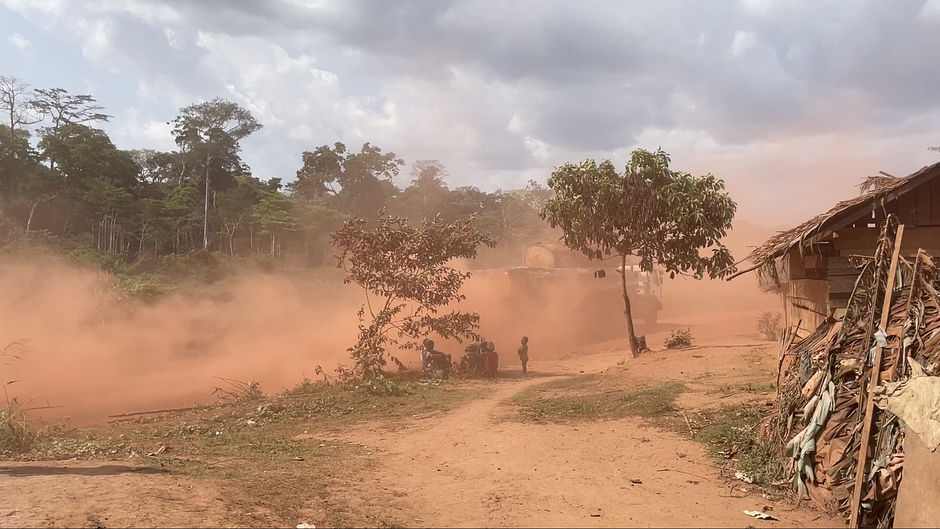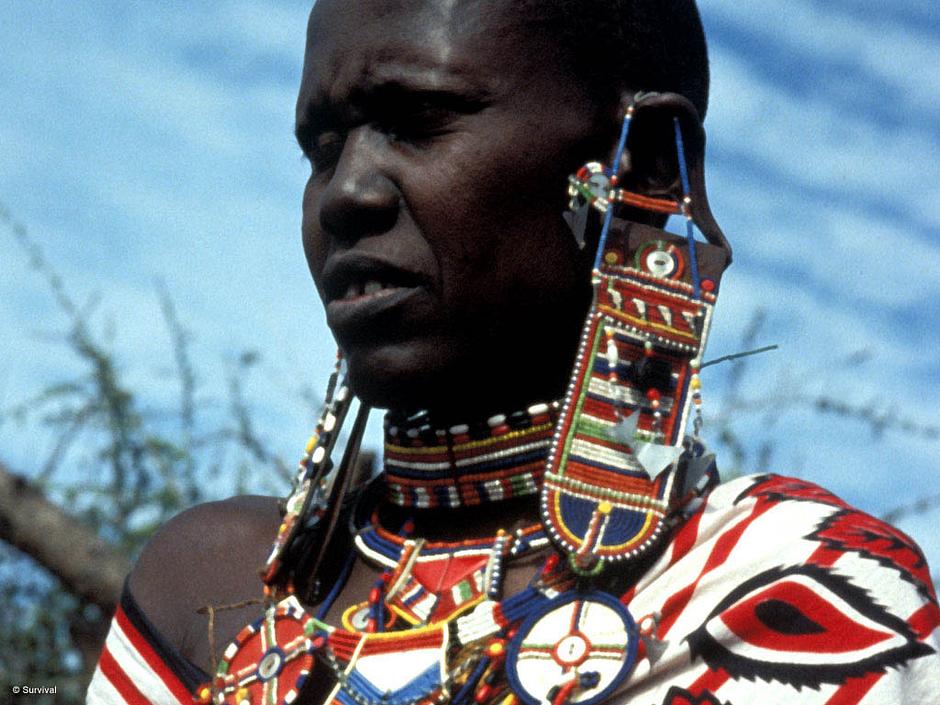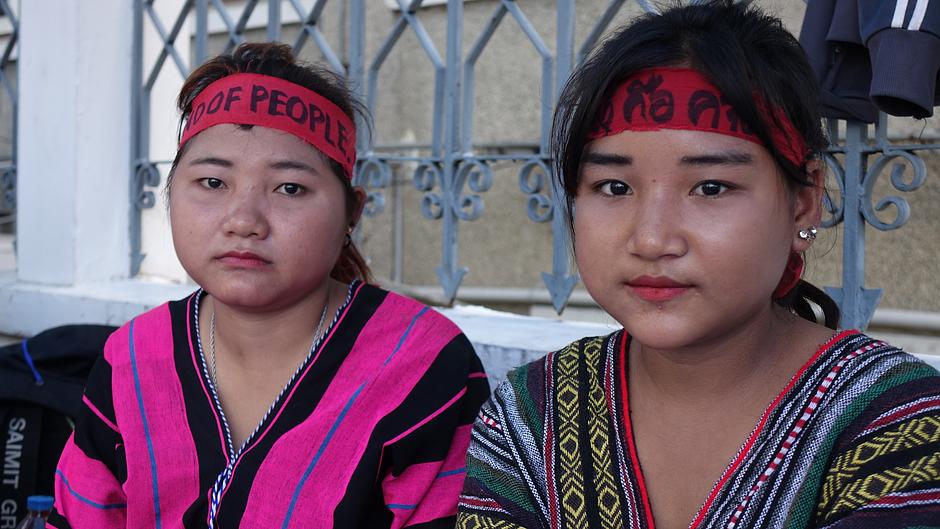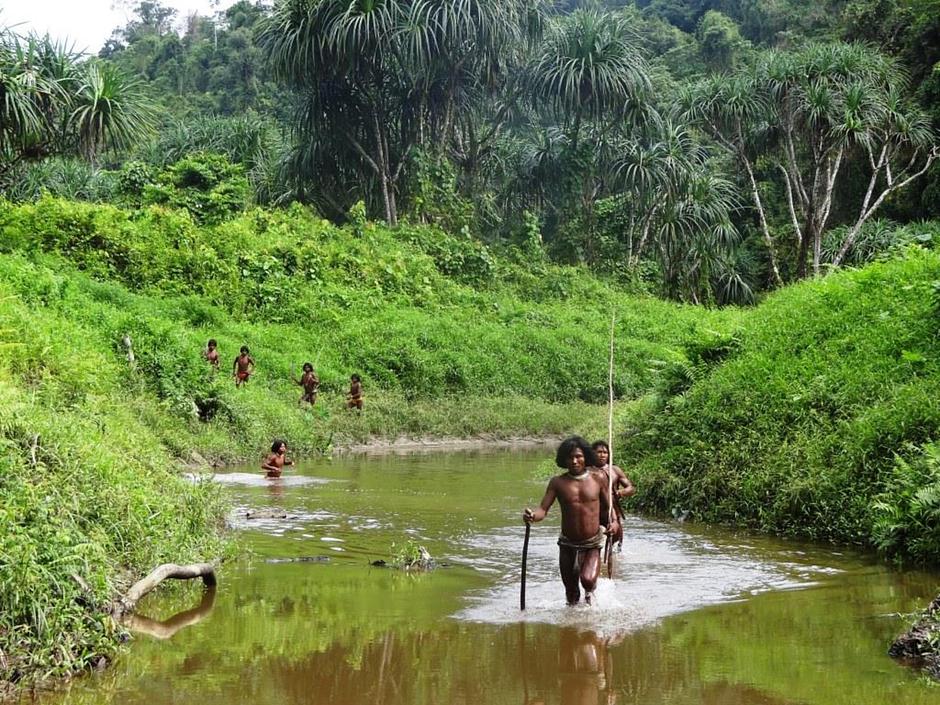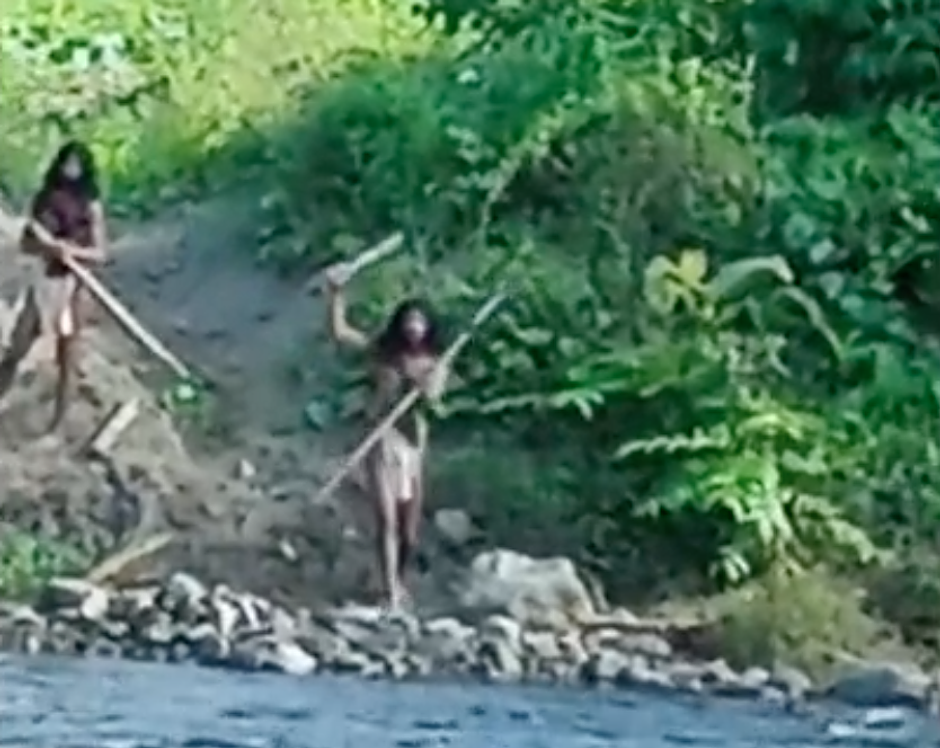‘Destroying the Niyamgiri Hills would be like razing Westminster Abbey’
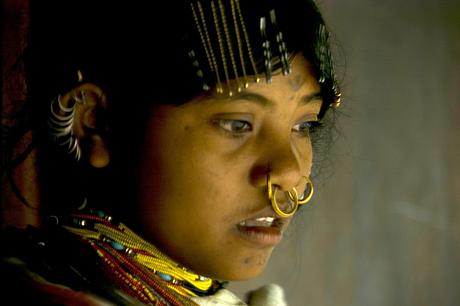 © Survival
© SurvivalMichael Palin talks about his travels to the Niyamgiri Hills in Orissa, India, on behalf of Survival International: Tuesday 22 February 2010
‘The idea that the Niyamgiri hills should be destroyed, especially for animist people such as the Dongria Kondh, is unfathomable,’ said actor, presenter and explorer Michael Palin, speaking at The Soho Hotel in London last night at a talk he gave in aid of Survival. ‘It would be like razing Westminster Abbey.’
Michael Palin was referring to the Dongria Kondh tribe’s spiritual connections to their ancestral lands, the Niyamgiri Hills near Lanjigarh, in the Eastern Indian state of Orissa. To the Dongria, the hill is the seat of their god, Niyam Raja. But to British company Vedanta Resources it is a lucrative source of minerals: a $2billion deposit of bauxite (aluminium ore) lies under the mountain-top.
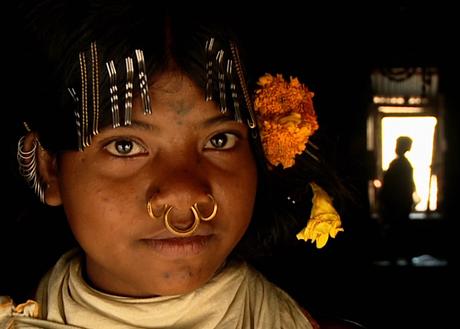
The open pit mine that Vedanta planned would have destroyed the forests, disrupted the rivers and spelled the end of the Dongria Kondh as a distinct people. In October 2010, however – and in a triumph not only for the Dongria, who have spent years resisting Vedanta, but for oppressed tribal peoples worldwide – the Indian government refused to grant final clearance for Vedanta’s mine.
Michael Palin decided to visit Orissa when researching a novel last year, for which he needed to visit a part of the world in which, as he said, ‘there is conflict between big industry and Indigenous peoples; where the forces of money and power are arrayed against a people who have occupied their land for thousands of years.’
Having learned about the Dongria’s struggle with Vedanta, Michael began his journey in Orissa’s ancient capital Bhubaneshwar. He travelled south-west past Chikka Lake, the largest seawater lake in India, then up through the interior to the Eastern Ghats. Finally, he arrived in Lanjigarh, where Vedanta Resources’s refinery is based.
During the talk, he described the many sights en route from Bhubaneshwar: mud and thatch huts decorated with rice-powder motifs, sculptures depicting Buddhist elephants submitting to Hindu lions, trucks decorated with multi-coloured tassels and monuments to local Naxalite heroes.
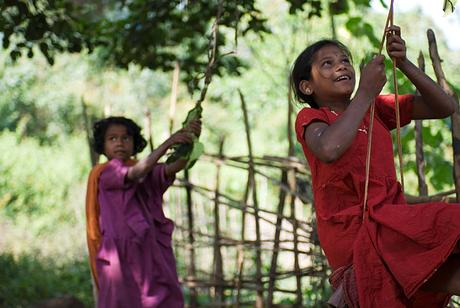
As he journeyed through tribal areas, so the landscape of Orissa became increasingly rural. Arriving in Lanjigarh, however, we saw in his photographs Vedanta’s blot on it: rice fields dotted with pylons, large vehicles carrying turbines needed for Vedanta’s refinery and the chimneys, concrete, smoke and heavy fencing of the bauxite refinery itself, an industrial aberration against a backdrop of forested hills.
Michael explained that the name Vedanta refers to a Hindu philosophical system, which holds that to do harm to another is to harm oneself. ‘Although how they can justify the harm they have done here, I’m not sure,’ he told the audience, as he described ‘red mud’ ponds of toxic slurry, the waste result of aluminium processing. (Recent reports have suggested that the ponds leach toxic chemicals into the underlying water table, and that locals have reported sores developing on their bodies after washing in rivers close to the refinery.)
Once in the Dongria Kondh’s village he saw how their practical and spiritual lives are entirely interwoven with their environment (the name Dongria Kondh means ‘protector of the streams,’ as the Niyamgiri Hills are criss-crossed by rivers.) Stripping the hills of bauxite would also destroy the area’s irrigation system, because ‘their whole pattern of agriculture is based on the way the water courses off these hills.’
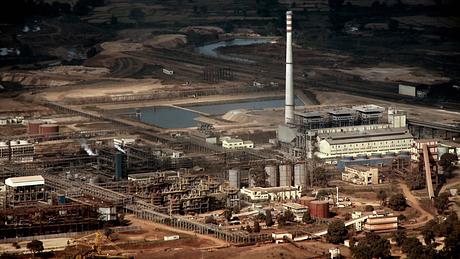 © Survival
© Survival
As Michael was about to leave, he saw a woman and her grandson walking into the woods to pick fruit. ‘What I found particularly moving was the realisation that if Vedanta got their way, this young boy’s livelihood would be destroyed within a year,’ he said.
Later that year, after he returned to the UK, he discovered that plans for the mine had been refused. ‘In the Dongria’s case, the big boys didn’t win,’ said Michael. ‘It gives so much hope to other tribal peoples in similar situations.’
At the end of the talk, a member of the audience asked Michael what he had learned during his Indian research. ‘The Dongria’s way of life has worked for 2,000 years without harming anyone else,’ he replied, ‘So it taught me that if people don’t want to leave their lands, you cannot kick them out.’
‘One more thing,’ he added. ‘It also taught me that no-one is powerless.’

